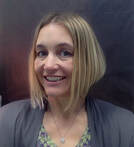|
When I taught high school mathematics, my first homework assignment was always a math autobiography. I asked students to tell me about themselves through the lens of mathematics. I offered them a few prompts, but purposely left the assignment general so they could interpret it as they saw fit. Writing wasn’t required. I told them if they best expressed themselves through a mathematical interpretive dance then go for it! Unfortunately, no one ever took me up on that offer. However, I did have more than one high schooler adorn their papers with stickers, drawings, write a poem, or create other personal representations of their mathematical journeys. What was the most common phrase from their autobiographies? I used to like math until… I used to like math until my 7th grade teacher made me solve problems at the board in front of the class. I used to like math until my teacher handed back our math tests in order - highest grade to lowest. I used to like math until my 4th grade teacher told me girls don’t do well in math (this came from a grade 10 student in 1999). I used to like math until middle school and then it made no sense to me. I read my students’ mathematics autobiographies only after I had learned all of their names. Not only was it a way to get to know the group of learners in front of me, but it gave me insight into some of the math baggage most students carried, and they carried a lot of baggage. What are we doing as a math community to stop the phrase I used to like math until? Whenever I visit Twitter, I feel like we are doing a lot. Twitter is alive with practical examples of empowering students to become problem solvers instead of followers of rote procedures. I would be shocked and saddened to hear that an elementary teacher told a girl that she can’t do as well in math as the boys. There is an entire program, MidSchoolMath, focused around the middle school math cliff, acknowledging that something happens in middle school to our math learners. However, this is not an issue that occurs only in middle school. How many high school teachers hear the question, “When are we ever going to use this?” If the only response is for the test or for next year’s class, how can we expect students to be motivated to learn the topic that is in front of them that day? If we can’t come up with a real example of an application of the mathematics, then why are we teaching it? Better yet, what questions are we asking our students or what agency do they have to make their own connections to the world around them? And please don’t tell me we have to teach a topic because it’s in the standards. When James Tanton, a mathematician-at-large for the Mathematical Association of America, taught high school mathematics, he realized that he had to teach polynomial division to his high school students. I love his response. "My charge: Teach polynomial division to high-schoolers. My reaction: Why?" -- Dr. James Tanton (quote taken from Math Recess by Sunil Singh & Dr. Chris Brownell) He thought outside of the box and created Exploding Dots, which has now grown to be an international movement though the Global Math Project. It is possible to do things differently, even when a topic is “in the standards.” And, if you don’t know about exploding dots, now is the time to explore them. Don’t wait! One of my goals as a high school teacher was to change the attitudes of students who told me at the start of the year in their autobiographies that they didn't like math or weren’t any good at math. Which, unfortunately, was often a majority of the class. Did I always succeed? No. But I hope that I was able to give even the most reluctant learners a glimpse into how math could be enjoyable and not something to fear. These were the days before Twitter and Jo Boaler entered my life with her empowering research on the importance of a math mindset. So, I did my best with the resources I had. How can we ensure that all of our learners know they have a place in our mathematics classrooms? How do we prevent one more student from ever saying, I used to like math until? It isn’t easy, but it is crucial if our goal is to nurture students who are excited to take MORE math classes in high school for the right reasons. That is, not just for their college applications, but because they find joy in exploring the beauty of mathematics and wonder what discoveries are yet to be found. What empowering experiences will your math students explore today? Here are a few places to find some inspiration.
3 Comments
|
Nicole FedioMathematics Consultant at Mathematique Archives
February 2020
Categories |

 RSS Feed
RSS Feed
